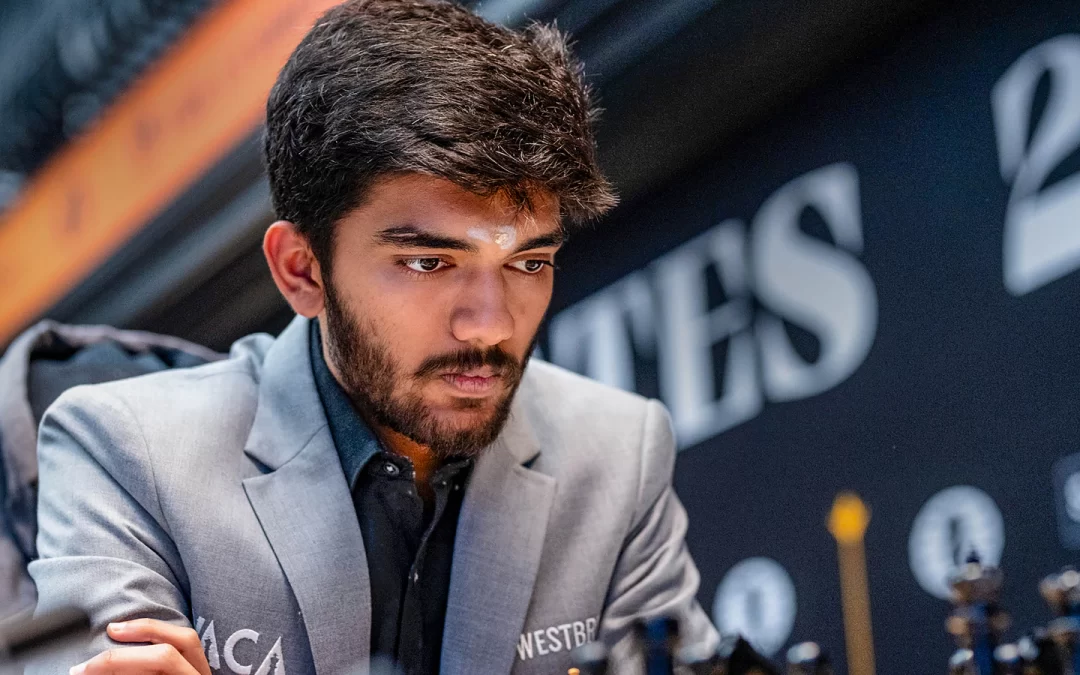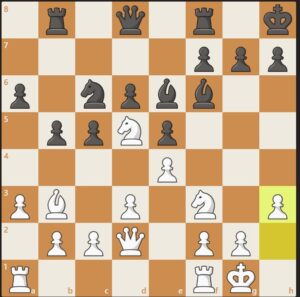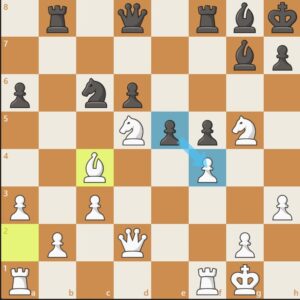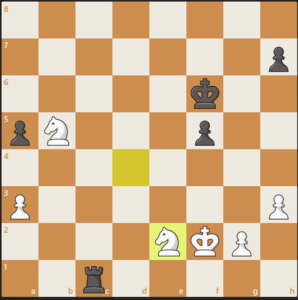The Budapest Chess Olympiad 2024 is currently underway, and the Indian team faced the formidable Chinese team, whose average rating exceeds 2700. This match was highly anticipated, especially the potential clash between Gukesh D and Ding Liren. However, Ding Liren did not play, a decision that sparked some criticism. In my opinion, it was a fair call by the Chinese team, given Ding’s recent form and Wei Yi’s strong performance.
Key Moments in Gukesh vs. Wei Yi:-
The opening was wild, with a rare position arising from the Sicilian Defense. Grandmaster Peter Svidler noted in his commentary that this position could also be reached from the 6.d3 variation in the Spanish Opening. It’s fascinating how similar structures can emerge from different openings!
Peter Svidler later pointed out that Wei Yi missed a crucial opportunity on move 21 when he played exf4. At the Grandmaster level, any other move would have given him a significant edge. The pressure of the big stage likely affected his decision-making.
Also read, chess setup
In this position, a simple move like Na5, attacking the bishop and forcing it to Ba2, followed by Nb3, would have given Black a huge advantage. Instead of capturing with exf4, pushing the pawn to e4 would have also maintained the advantage. Interestingly, this wasn’t Wei Yi’s usual style. He typically thrives in complex positions with fluid pawn structures, where he has built a reputation for outplaying opponents. However, this time, he misjudged the position.
The game was topsy-turvy but highly entertaining for chess fans. The real action began around move 44
The Turning Point:-
In the following position, many commentators believed it was a draw. Two knights are generally not very flexible when there are pawns on both sides of the board. Some pundits even unofficially declared it a draw, suggesting Wei Yi should easily hold the position. But Gukesh proved why he is the youngest ever to win the Candidates Tournament.
He played the game of his life, showcasing a masterclass in endgame technique with two knights and pawns against a rook and pawns. The entire chess world was in awe of Gukesh’s superhuman, computer-like skills. This 18-year-old prodigy helped India secure a perfect score of 7 out of 7 in the Olympiad, defeating the mighty Chinese team. Gukesh shows no signs of stopping and is becoming a favorite for the upcoming World Chess Championship in Singapore later this year.
Will Gukesh Win Against Ding Liren?
What do you think? Will Gukesh win the match against Ding Liren? Let us know in the comments below!
Want Your Kids to Be the Next World Champion?
Do you want your kids to play like Gukesh D? Sign them up for a free trial and online chess classes with Premier Chess Academy now!





Recent Comments